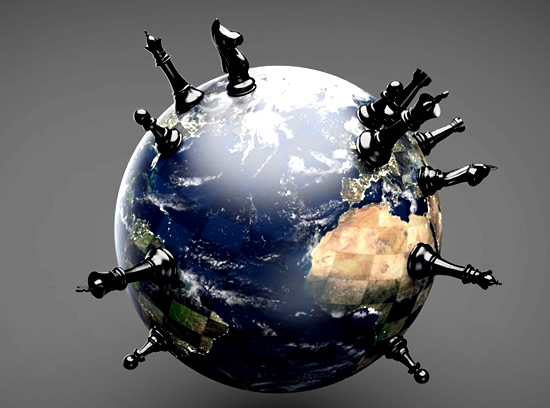
The emotional amoral egoism of states
In 1812 Napoleon Bonaparte, at the heights of his power, set out for the most adventurous, and ultimately fatal, military campaign. Napoleon’s Grand Army of over 500,000 men, the largest force ever mobilized to that date, was led to the lands of Russia. Historians have long investigated the misjudgements of this campaign and the question of hubris emerges as an underlying factor for Napoleon’s vehemence to pursue a disastrous campaign. Hubris is exaggerated pride, often combined with arrogance. Excessive confidence and reassurance, inspired from his established conquests and grandiosity, further inflated by narcissism, led Napoleon to conduct a military campaign that could be allegedly classified as irrational because it took place against the backdrop of a series of warnings and unfavorable forecasts from his lieutenants. The motivations for setting to conquer Czar Alexander’s Russia were less driven by the geopolitical necessity of defeating a rival power as by the impetus “to satisfy a hubris-infected personality” and an insatiable “hunger (…) for applause from others”.
Traditional theoretical accounts on the interaction between states have largely favoured the view of states as rational actors, attributing too little to the role of emotions. The Realist assumption that leaders (even elected ones) act predominantly rationally implied similar expectations on the level of states. This claim can be countered on several fronts. The state can be a rational, self-interested, power-maximizing actor, yet deconstructing the discourse on state rationality and state egoism, defined as the pursuit of national interests, paints a more complex picture of the facets of state conduct. This takes us beyond the established IR dogma about the state.

Predisposed Tabula Rasa
Studies of human behavior and psychology have received extensive attention in public policy. Economists, social theorists and philosophers have long analyzed the incentives of human actions, decision making, rationality, motivation, and other cognitive processes. More recently, the study of happiness furthered the debate in public policy, as many governments brought up the necessity for new measures of social progress. The discussion was bolstered when the UN passed a critical resolution in July 2011 inviting member countries to measure the happiness of their people as a tool to help guide public policies. It was also hoped that discussions about happiness would serve to refine the wider debate about the UN Sustainable Development Goals for 2015-2030 and the standards for measuring and understanding well-being. The World Happiness Report, a recent initiative, attempts to analyze and rate happiness as an indicator to track social progress.
These recent initiatives serve as reminders that sound public policies must evolve in strong connection with an understanding of human psychology, emotions and the sources of happiness and satisfaction. Nevertheless, there are further invaluable insights from neuroscience that have remained less explored. Contemporary neuroscientific research and an understanding of the predispositions of our neurochemistry challenge classical thought on human nature and inform us of fundamental elements that must accompany good governance.

Who are we: Neurochemical man and emotional amoral egoism
It was Chekhov who said that, “Man will only become better when you make him see what he is like.” The levels of sophistication of science to date might not have managed to fully grasp ‘what man is like’ in neurobiological terms, yet Chekov’s instinct was sound: acquiring an accurate portrayal of human nature is a prerequisite for creating conditions that respect human dignity and morality. Attempts at moral education which fail to take into account fundamental neurochemical elements of human nature, are bound to prove unsuccessful. In some cases, these may even have undesired effects as they can lead to unreasonable expectations.

Inclusive education programmes are a key component to global security
There are all kinds of moral truths that see the world from different perspectives, and none of them have to necessarily be more right than the others. This underscores the significance of education: alongside family structure and cultural context, education has the capacity to influence every aspect of how we think about the world. It is crucial in our context of unprecedented globalization to put this powerful tool to use in the interest of tolerance and cultural understanding in ways that foster harmonious co-existence, and cultural synergies. When the fundamental importance of education becomes fully appreciated, it can be revitalized and adapted to encourage open-mindedness, inclusion and cooperation.

The Social Contract 2.0: Big data and the need to guarantee privacy and civil liberties
Much has been written regarding the rate of technological innovation and how these advancements might provide solutions to the emerging challenges facing humanity in the 21st century and beyond.A number of new technologies raise questions of our relationships to these technologies, and will be crucial to consider in terms of their sociological and cultural impact. Ultimately we must consider how specific technologies might either preserve or threaten human dignity, and thus what sorts of empowerment or regulation will be most appropriate. The integrity ofthe social fabric at various strata relies upon—often unspoken—understandings held in common by individual members of those social strata.
The idea of a social contract has a long history, dating back to various ancient cultures, ranging from the ancient Egyptians, Hammurabi, Greek, Roman, Chinese, Indian and the traditions of the three monolithic religions, Judaism, Christianity and Islam. However, a more recent exploration started with Grotius, Hobbes, Locke and, of course, Rousseau, who explored the limits of individual freedom, and the power of the sovereign. From Locke`s conception of the state as a “neutral judge”, to Rousseau, Rawls and others, all perspectives of the social contract ultimately seek to explore why rational individuals would consent to give up some of their freedoms as a trade-off for living in a political order.
A common thread in the social contract theory is the assumption that the state and political order exist for the general interest of the people, where life, liberty and property can be protected. What does this mean in an age of rapidly emerging technologies, Big Data, intense mobility and deepening connectivity and interdependence that transcend normal sovereign borders? Now seems to be an appropriate time to reassess some of our long-held credos about our liberties, the functions of the sovereign and the limits of control.
The Geopolitics of Culture: Five Substrates
Culture has a salient geopolitical relevance in a world that defines itself by much more than diplomatic exchanges and inter-state relations. This is primarily because of the deeply visceral and emotional connotations associated with identity issues. This has been the case throughout history, as exchanges have taken place between people of different cultures for millennia, but today they are marked by unprecedented intensity and scope of relations. This offers great opportunities on a number of levels but also has the potential to initiate tension or conflict when combined with injustice, inequalities and insecurities.
Cultures are cognitive structures that shape how people view themselves, relate to the world and to each other. As I have explained in my theory “emotional amoral egoism”, human beings are motivated above all else by emotional self-interest. This includes ego, which entails negotiating between inner needs and social context and which requires a sense of belonging and a positive identity. Identity performs its functions by drawing boundaries. If the social context precludes a stable and positive group identity– for instance, because of being negatively defined by others – people are more likely to generate a resistance identity, with boundaries that appear impermeable and safe, or by engaging in identity construction that can lead to xenophobia, rigid ethnocentrism, or forms of ideological radicalism. Because of the emotional nature of identity issues, identity construction has to be authentic to each group itself and will be rejected if defined by others.
Having a positive group identity and self-identity does not have to imply denigrating difference, even if one’s own group is ultimately preferred. I would even argue that cultural and ethnic diversity can be thought of as benefiting humanity’s future, survival, strength and excellence. It promotes what I call cultural vigor similar to the way in which molecular and genetic diversity promotes “hybrid vigor” in nature and thus strength, resilience and a higher potential for a problem-free future. However, in order to yield such productive results, cultures and sub-cultures need to evolve in a non-exclusive manner in a context of transcultural security.

Geopolitics of dignity
I want to argue that to sustainably plan for the long-term human dignity must be placed at the heart of foreign and security policy.
The pursuit of freedom has long been thought of as the driving force of history. Freedom became the mantra of much of the Western interpretation of any popular uprising in a post-authoritarian context. However, the yearning for dignity, demonstrated for example by the Arab Spring, is a more fundamental and more inclusive human need than just the desire for freedom, and it is possible to live in freedom but not in dignity even in mature democracies.
Dignity for all at all times and under all circumstances, is central to the sustainability of any political order. Dignity is an encompassing notion, meaning much more than simply the absence of humiliation. In a previous work, I identified nine essential human dignity needs which are: reason, security, human rights, accountability, transparency, justice, opportunity, innovation and inclusiveness. The sustainability of any political order depends on governance mechanisms that successfully balance the ever-present tension between these nine human dignity needs and the three attributes of human nature as I define them: emotionality, amorality and egoism.

Rare-earth metals: anticipating the new battle for resources
Natural resources are pivotal in international politics. They create patterns of cooperation, dependencies and alter balances of power. The battle for resource is most commonly associated with energy resources such as oil and gas, or base metals indispensible for industries: aluminium, copper, lead, nickel and zinc.
In recent years, China has gained the reputation of a resource-avid country, pursuing deals for resource exploitation to its advantage. In numerous countries across Latin America, Asia or Africa, China has already established long-term deals with governments to obtain access to vital metals or resources.
In light of such narratives and records, a lesser-known fact about the geopolitics of resources has escaped public polemics. This refers to rare earth metals or rare-earth elements (REMs), a set of 17 naturally occurring non-toxic materials, which play a pivotal role for emerging technologies and which are predominantly produced and exported from China.Estimations of China`s hold on the REMs market are as high as 97% of the world production.










